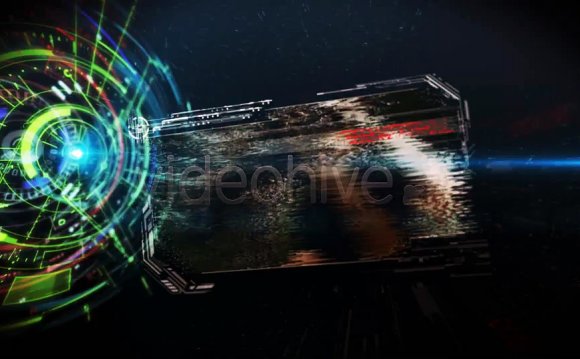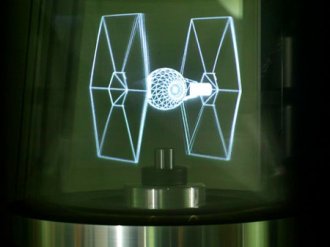
 In technical terms, a holographic display is basically a type of display technology that has the ability to provide all four eye mechanisms: binocular disparity, motion parallax, accommodation and convergence. Continue reading to see five amazing holographic displays that actually exist now.
In technical terms, a holographic display is basically a type of display technology that has the ability to provide all four eye mechanisms: binocular disparity, motion parallax, accommodation and convergence. Continue reading to see five amazing holographic displays that actually exist now.
5. Sony's 360-Degree Display
Electro-holographic display is a type of holographic display that uses electroholography for recording and reconstructing 3D objects. This display has advantages over other 3D displays; for example, it can reconstruct 3D images with full parallax.
4. Touchable Holograms
The technology consists of software that uses ultrasonic waves to create pressure on the hand of a user touching the projected hologram. Researchers are using two Wiimotes from Nintendos Wii gaming system to track a users hand.
3. Holographic TV
In June 2013, the MIT researcher Michael Bove has claimed holographic televisions could be in living rooms in the next 10 years at the price of today's two-dimensional sets because of technology being developed by Massachusetts Institute of Technology's Media Lab.
2. Laser Plasma
In 2005, researchers at the University of Texas have claimed to create the first true holographic display. In 2008, scientists created the first rewritable and erasable holographic systems.
1. Pistons
Francesco Pessolano, manager of Imec's NVision program, shows off a prototype of a holographic display built with standard semiconductor processes. Pessolano suspects detailed 3-D video displays can be made by moving reflective microelectromechanical systems (MEMS) structures up and down like microscopic pistons.
RELATED VIDEO











